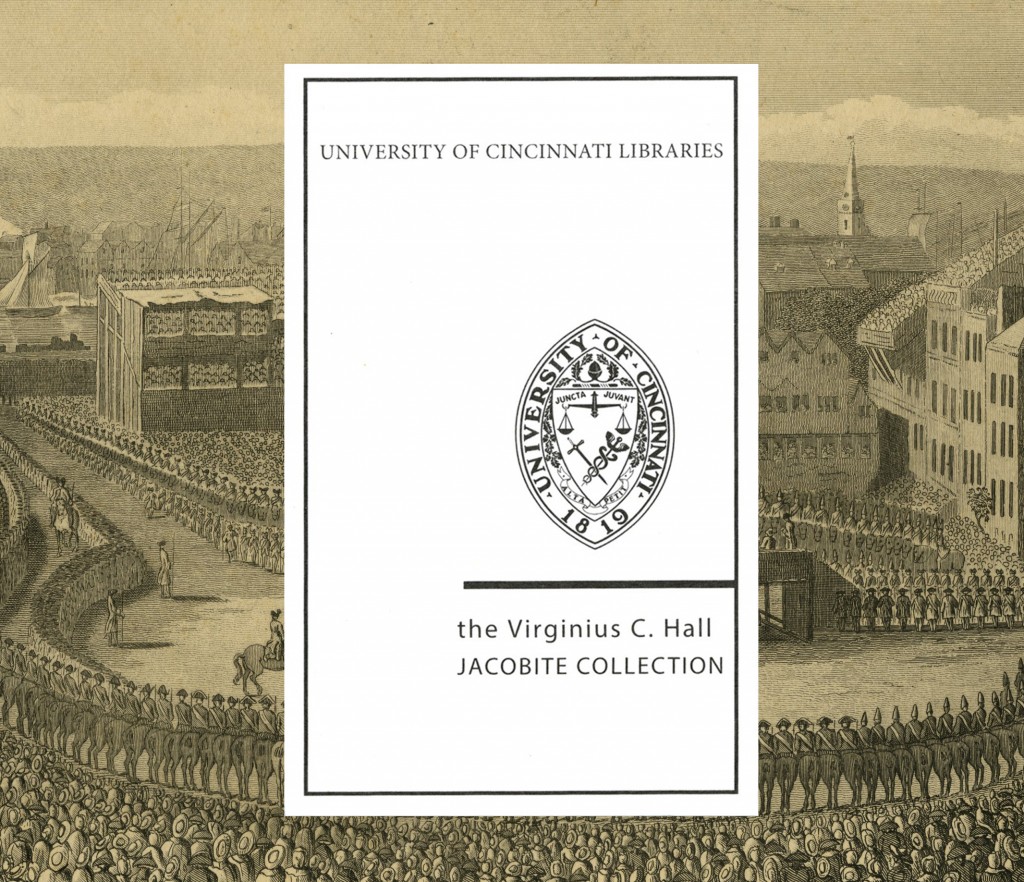
I bought my first book on the Jacobites when I was about fifteen and a boarding school student at Groton School in Massachusetts. It was the Chevalier de Johnstone’s History of the Rebellion in 1745. A few years later, (1951) on my first trip to England and Scotland, I visited the battlefield at Culloden, scene of the decisive defeat of Charles Edward Stuart (“Nonie Prince Charlie”). On that same trip, I bought a book from Blackwell’s bookshop in Oxford, Sandford’s large folio History of the Coronation of James II. Eager to peruse it, I turned down the shop’s offer to mail it to Cincinnati, consequently having to bicycle with it strapped over the rear wheel, as a friend and I continued our youth hosteling tour. It survived the trip.
While still an undergraduate at Princeton, I began to buy seriously—or, as seriously as I could with the limited time and money at my disposal. Antiquarian books from England were cheap right after World War II, and I ordered regularly from the catalogues issued by English booksellers. Eighteenth century pamphlets could usually be had for between $1.50 and $3.00 each. My most extravagant purchase from that time cost a staggering $100. I thought long and hard before ordering it, but it was, after all, written by Henry Fielding—a fine copy of his extremely rare History of the Rebellion.
In 1954, compulsory military service took me to France. In the tar-paper barracks in Orleans, I continued my regular perusal of booksellers’ catalogues (forwarded by my parents in Cincinnati), and even on the paycheck of a Private First Class ($99 a month) I was able to acquire eighteenth century books and pamphlets.
I joined the staff of the Virginia Historical Society in 1958. A starting salary of $3600.00 per annum allowed me to buy with, what seemed to him at the time, reckless abandon! Gradually, however, book prices rose, and decisions as to whether or not I could afford a particular item became more frequent. By the mid-1960s, I had new family obligations to consider, and with the cost of antiquarian books increasing relentlessly, I concluded that I could no longer make additions to the collection. As a result, the collection remains basically what it was in 1970.
-Virginius C. Hall
Cincinnati, 2016
To access the collection, please click here